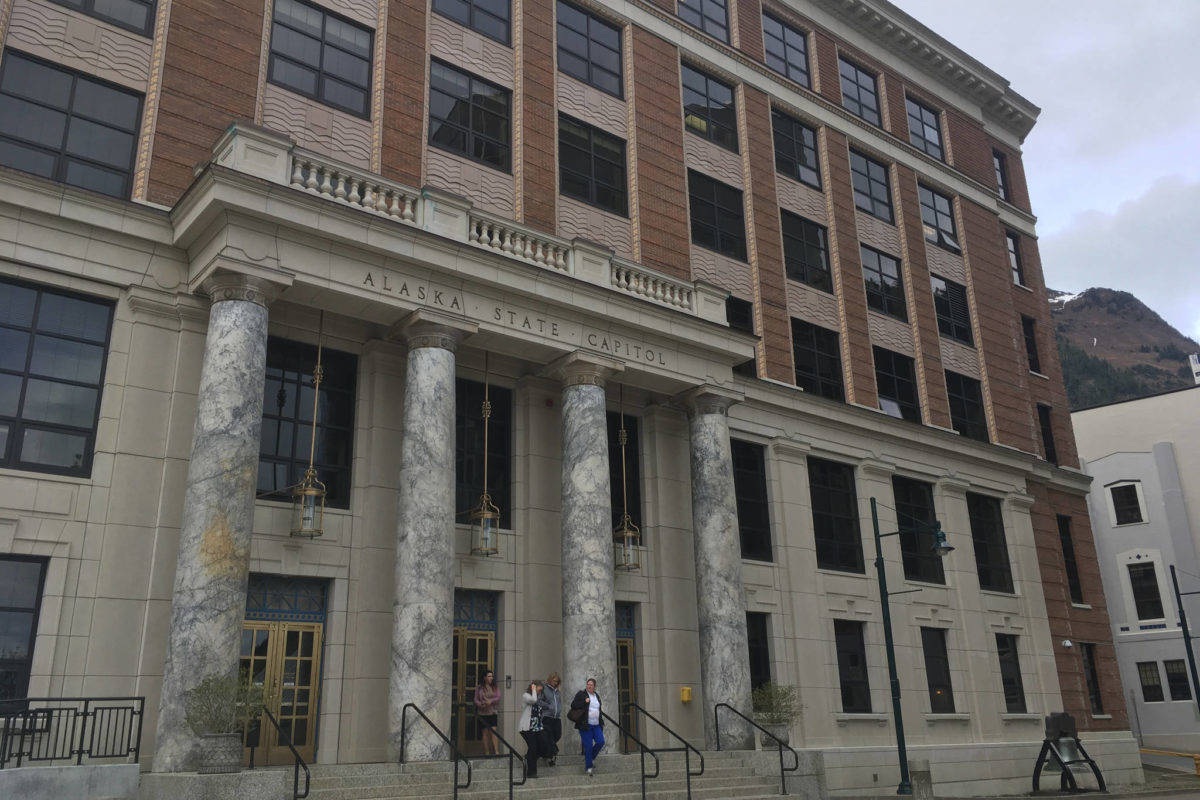A governor does not have the constitutional power to compel the Legislature to meet in a location other than the state capital of Juneau, according to a memo from the Alaska Legislature’s top legal adviser.
The memo from Megan Wallace, director of legislative Legal Services, comes amid a fight between legislative leaders and Republican Gov. Mike Dunleavy over where the upcoming special session will be held.
Dunleavy called for a special session, starting July 8, in Wasilla, where he’s from. But House Speaker Bryce Edgmon and Senate President Cathy Giessel earlier this week said the Legislature instead will convene in Juneau and hold most meetings in Anchorage.
Wallace, in response to a request for analysis from Edgmon, writes she listened to committee hearings surrounding a 1982 law dealing with special session locations. The law says a special session may be held at any location in Alaska and says if a governor calls one for a location other than the capital that should be designated in the governor’s special session proclamation. Dunleavy did that.
But Wallace writes that in her review, it seems evident the Legislature at that time “did not contemplate a scenario, like here, where the governor would designate a location in a special session proclamation absent an agreement with the legislature.”
The memo notes no other governor has called a special session for somewhere other than Juneau and special sessions held outside Juneau, in Anchorage, were initiated by the Legislature, which can call itself into special session if it can muster the votes.
The state constitution lists the capital as Juneau, and Wallace writes that delegates intended that capital would describe the place where legislative sessions were held. She said it may be neither the governor nor the Legislature has the power to designate a location outside Juneau for a session unless meeting in Juneau is impossible. That doesn’t necessarily mean legislation adopted at such a session would be invalid, she noted, but said that issue is not addressed in the memo.
She said the current situation raises separation-of-powers issues. The Legislature’s power to provide for meeting areas, staff, security and other services “is essential to its functioning as an independent branch of government. To preserve the legislature’s independence, a court may ultimately find it a violation of the separation of powers doctrine to give the governor the power to establish the location of a legislative session.”
Edgmon and Giessel said the Legislature was one short of the votes needed to call its own special session. But they said a majority of legislators in both chambers consider it the Legislature’s right to determine the best location and venue to conduct business.
Some legislators had cited concerns with security and the logistics of a special session in Wasilla.
Dunleavy on Monday cited the 1982 law as empowering him to call a special session in a location of his choosing. He said the attempt “to negate the special session in Wasilla has no legal basis.”
A message seeking comment on what happens now was left with a Dunleavy spokesman Wednesday.
Republican Rep. Colleen Sullivan-Leonard of Wasilla has called the meeting plan laid out by Edgmon and Giessel an “unlawful attempt to subvert the legally determined location” that is troubling.
Lawmakers were unable to complete their work during a 121-day regular session and a special session in Juneau. Lawmakers have regularly blown past a 90-day voter-approved regular session limit. The constitution permits the longer meeting period.
This isn’t the first dustup between Dunleavy and lawmakers. The Legislative Council has agreed to prepare for a lawsuit in a disagreement with the administration over school funding.
This is an Associated Press report by Becky Bohrer.

